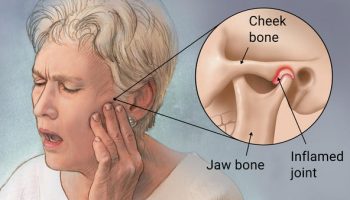Temporomandibular disorder is a condition characterized by some pain in the jaw area. Temporomandibular itself is joint that connects your skull’s temporal bones with your jaw. When the disorder comes, you may feel pain when trying to open or close your mouth. You may also feel pain when talking or chewing foods. In many cases, you can alleviate the pain and discomfort of TMJ disorder by having some home remedies and non-surgical treatments. However, surgery may also be taken when the pain persists and gets severe.
To get to know what temporomandibular disorders are like, you have to be well-informed about the symptoms, which include jaw pain and tenderness, discomfort and difficulty while chewing, pain in your facial area, pain in the ear area, and locking of the jaw joint. Normally, these symptoms may go away in couple days. However, if the pain and tenderness persists, you may need to visit a doctor or a dentist to know what kinds of treatments you must take.
The pain in your temporomanidbular joint can occur when the disk erodes or moves, the arthritis damages the cartilage of the joint, or when a blow damages the joint. One of the most frequent causes of TMJ disorder is teeth grinding (bruxism) during sleep. However, bruxism is not the only cause, and bruxism can also cause other kinds of condition beside joint pain. However, it is true that bruxism can be the cause of your TMJ pain as the grinding teeth can cause pressure on your jaw joint.
As part of the treatments for the TMJ, you can also try teeth grinding mouth guard or oral splints. In this case, you will need to wear a device inserted over your teeth, which can be either soft or firm. The mouth guard is believed to physically correct the bite. It is best option if you have TMJ disorder that is persistent and extreme. By having the mouth guard, the misalignment in your teeth or jaw can be corrected, guaranteeing that you get long-term relief.



